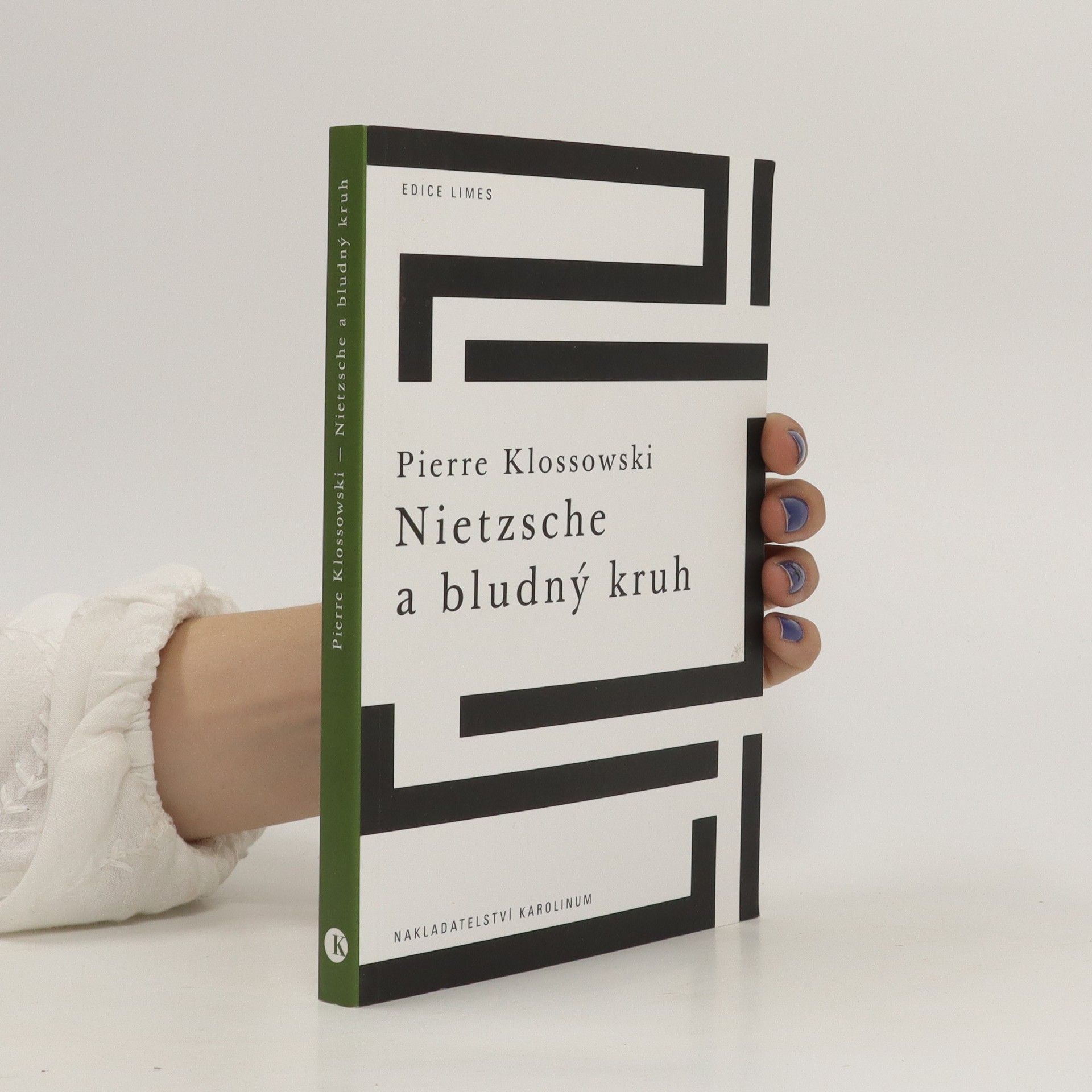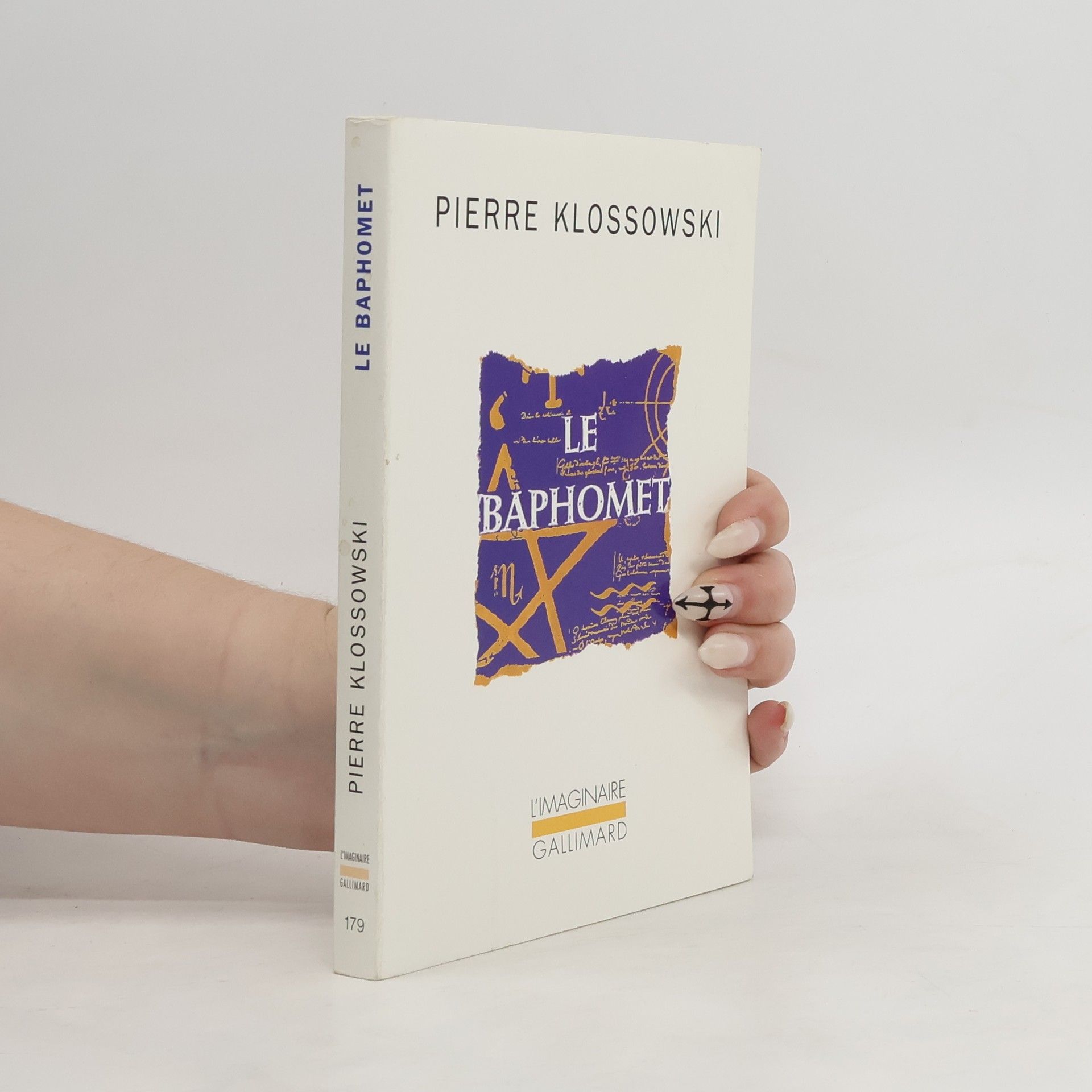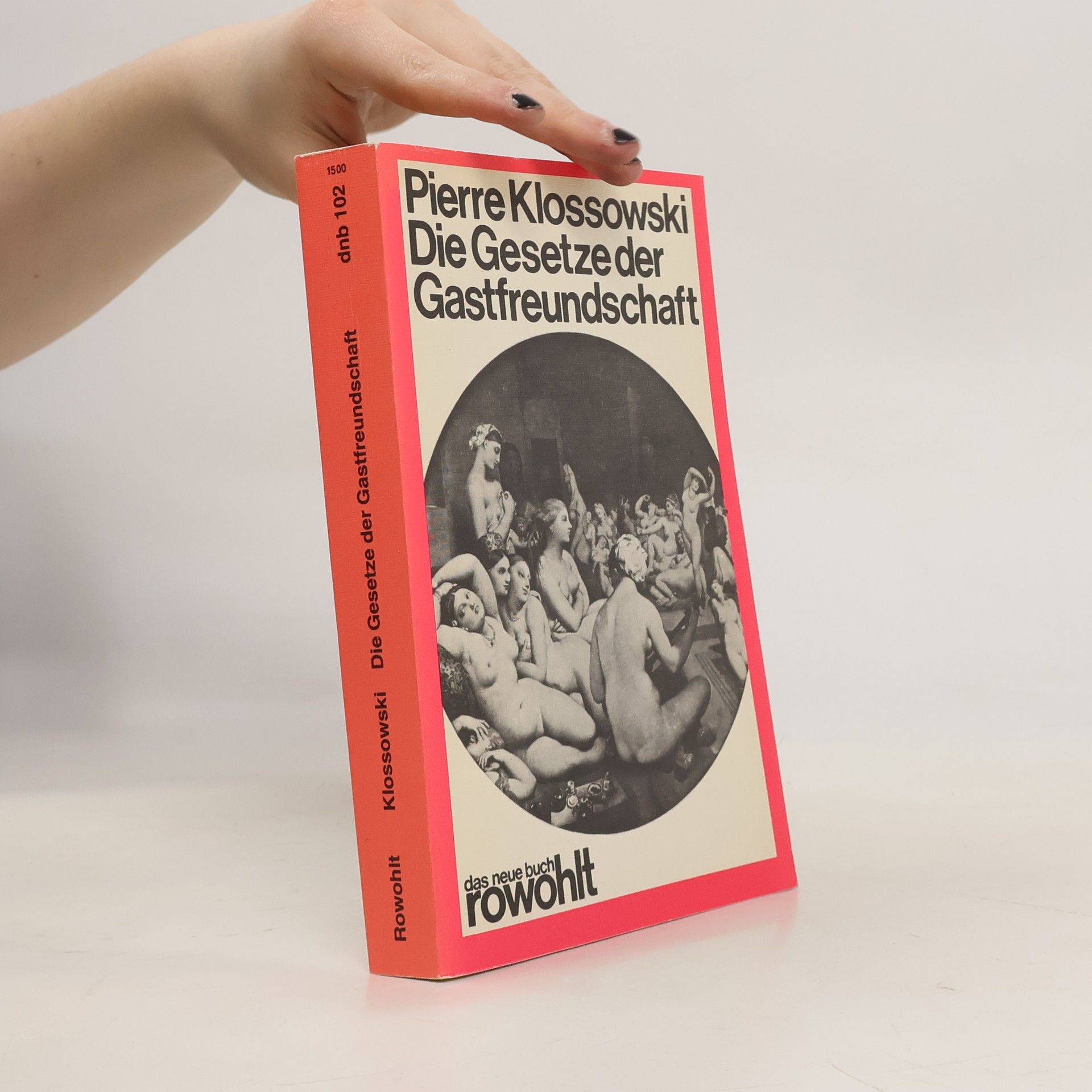'I should have written you after my first reading of The Living Currency; it was already breath-taking and I should have responded. After reading it a few more times, I know it is the best book of our times.' Letter to Pierre Klossowski from Michel Foucault, winter 1970. Living Currency is the first English translation of Klossowski's La monnaie vivante. It offers an analysis of economic production as a mechanism of psychic production of desires and is a key work from this often overlooked but wonderfully creative French thinker.
Pierre Klossowski Libros
Pierre Klossowski fue un escritor, artista y traductor francés cuya obra a menudo profundiza en los aspectos más oscuros de la psicología humana y las convenciones sociales. Su escritura explora temas de deseo, obsesión e ilusión con una profunda perspicacia filosófica. A través de sus textos provocadores, Klossowski desafía los marcos morales y éticos tradicionales, invitando a los lectores a contemplar las complejidades de la naturaleza humana. Su estilo literario único, influenciado por su formación artística, dota a sus obras de una atmósfera distintiva y una profundidad intelectual.

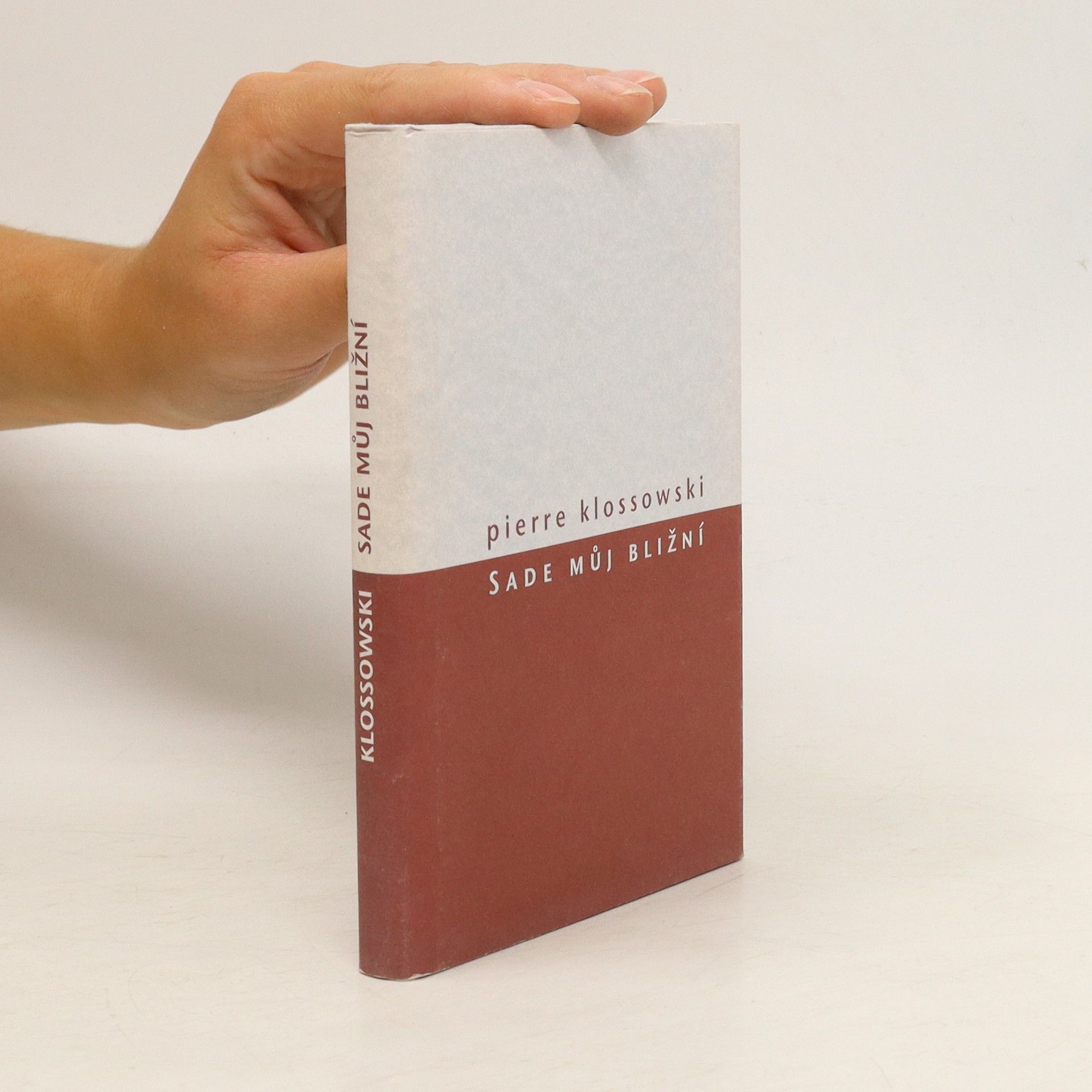
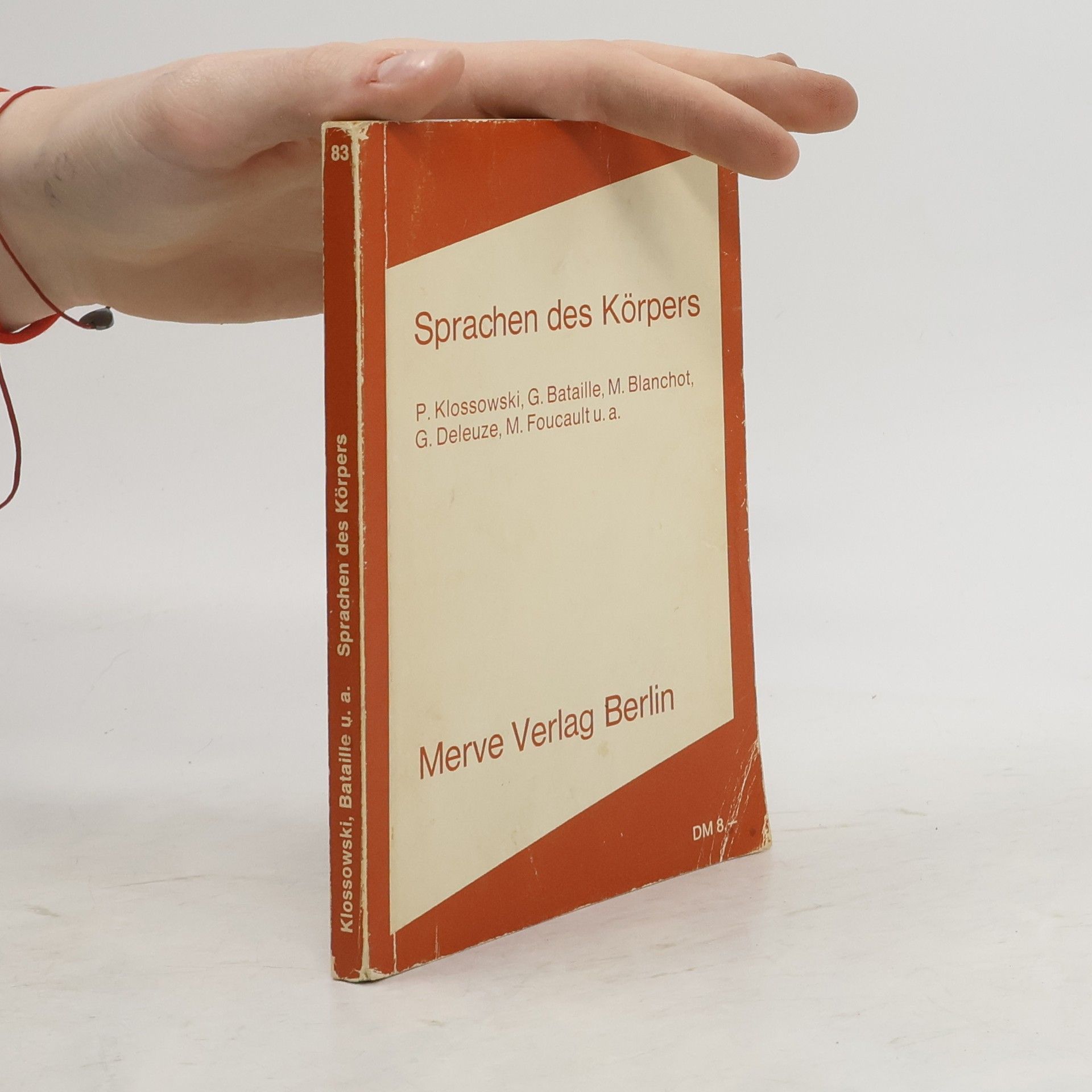
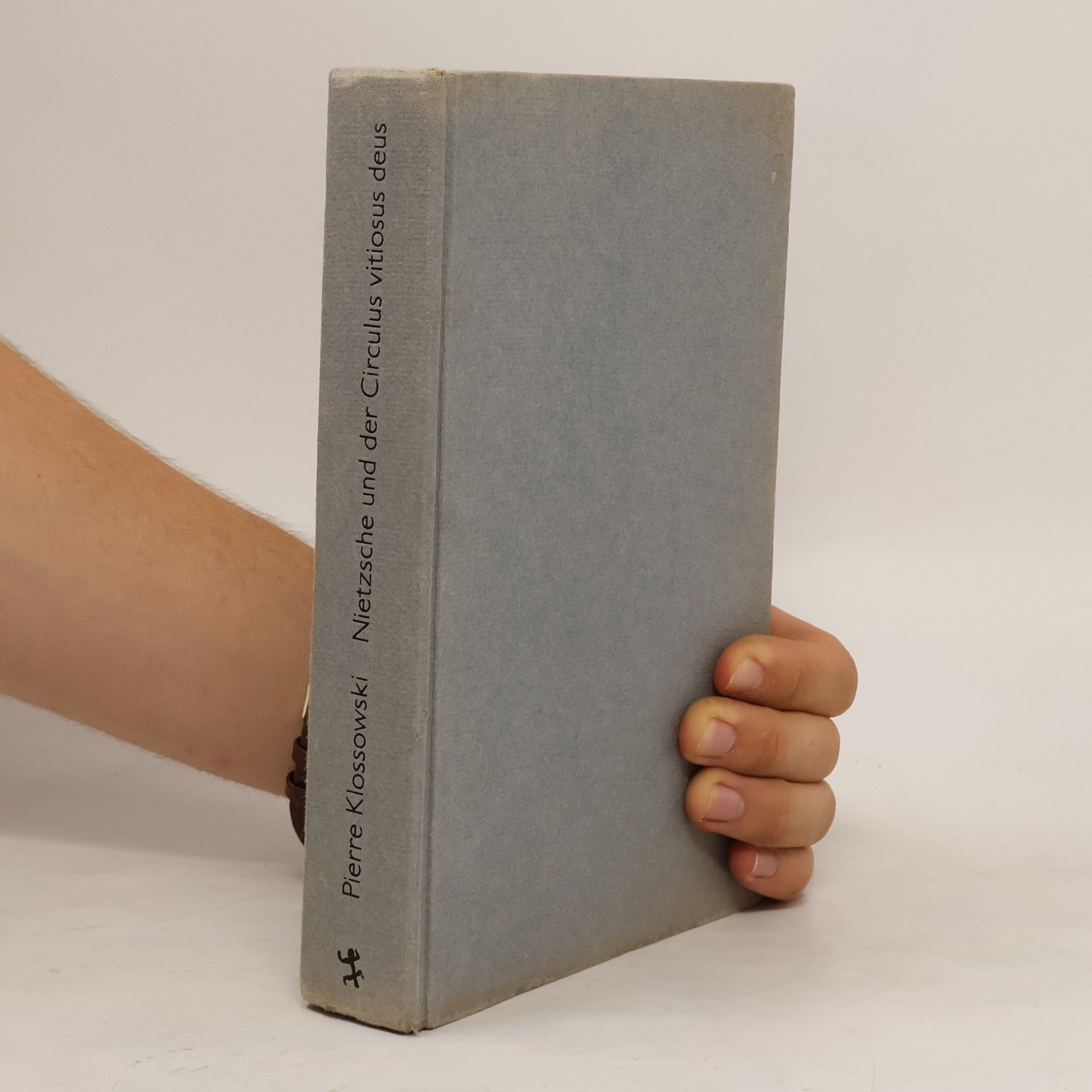
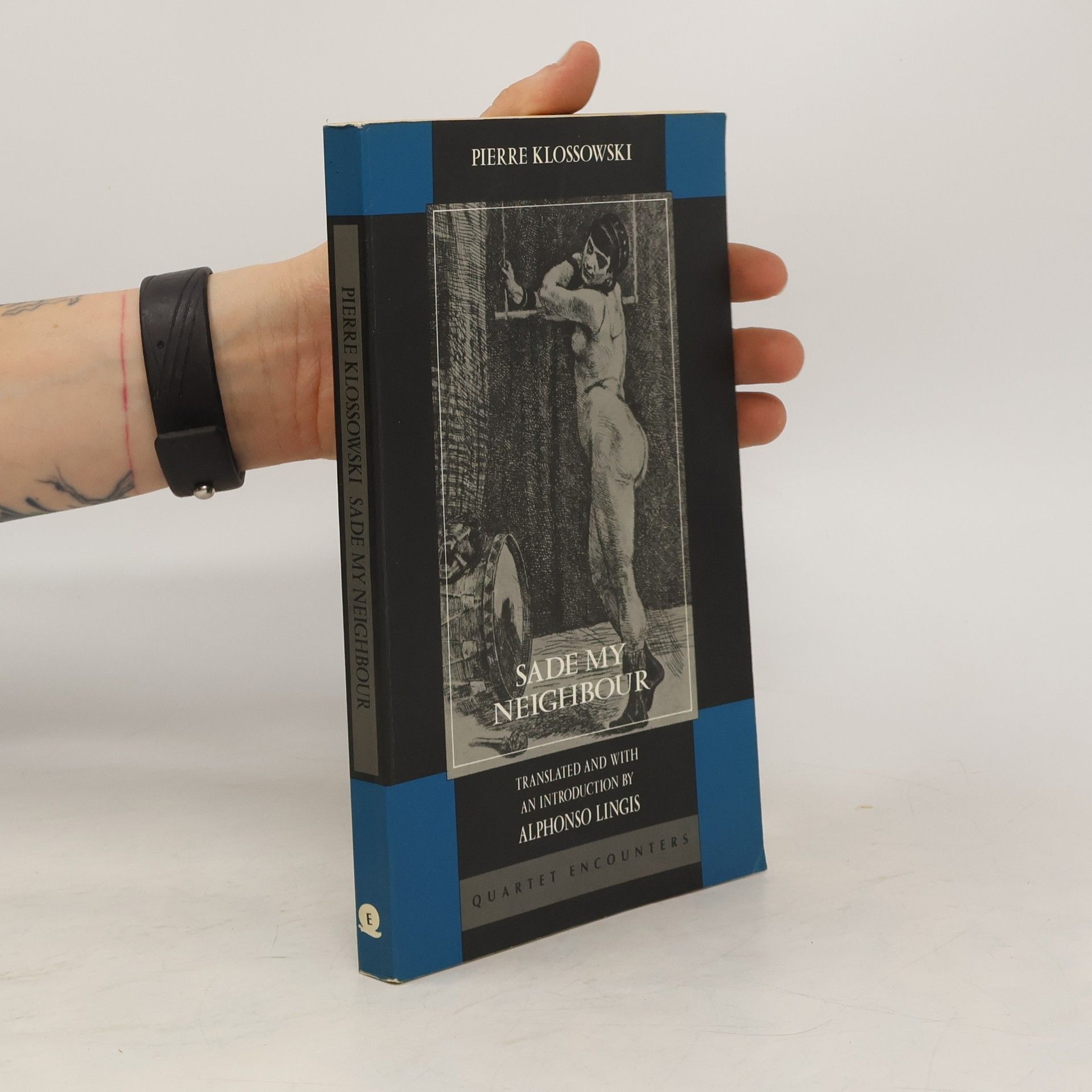
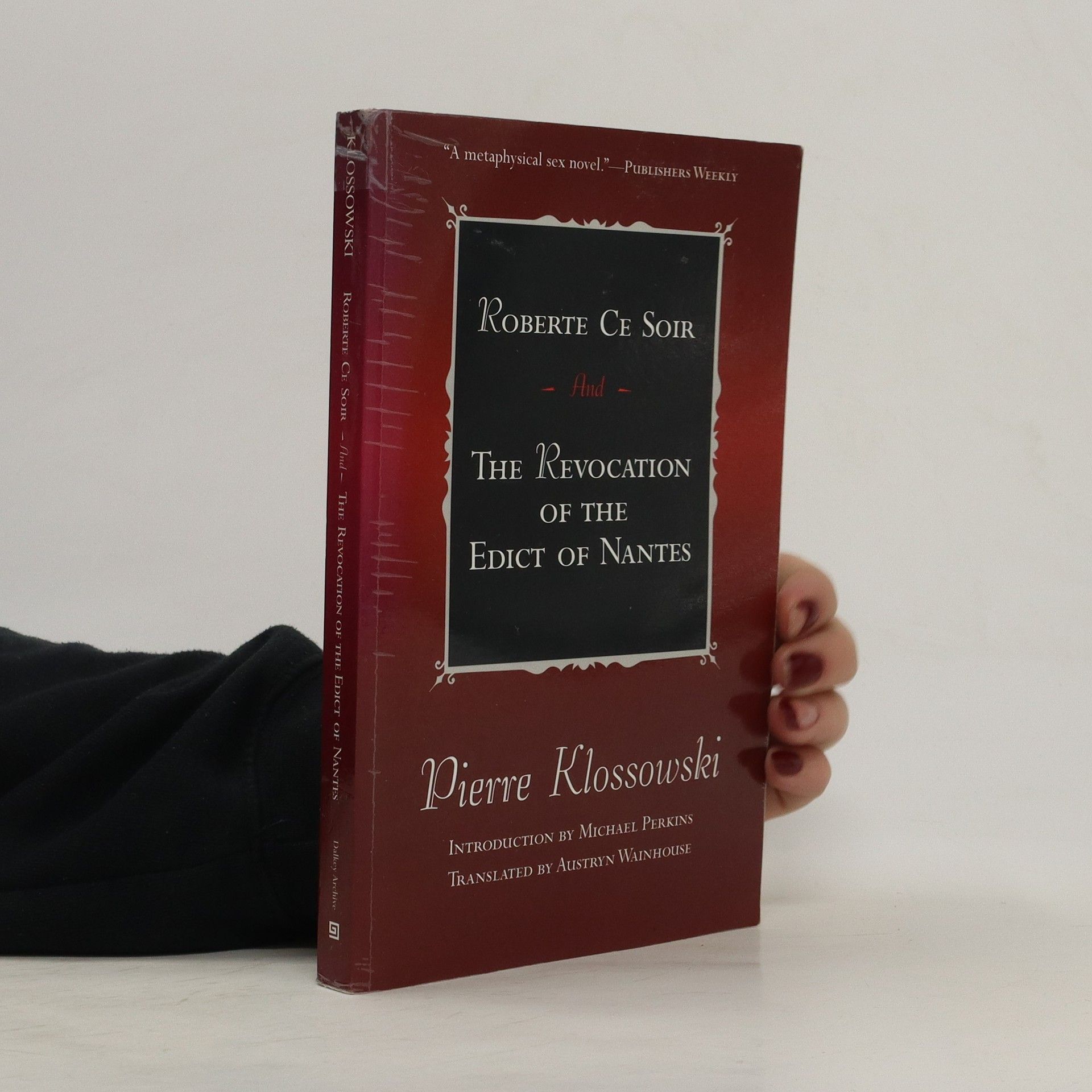

Together these two novels comprise the most fascinating, obsessive, and erotic works of contemporary French fiction. Like the works of Georges Bataille, and those of the Marquis de Sade before him, Klossowski's fiction explores the connections between the mind and the body through a lens of sexuality. Both of these novels feature Octave, an elderly cleric; his striking young wife Roberte; and their nephew, Antoine in a series of sexual situations. But Klossowski's books are about theology as well, and this merging of the sexual with the religious makes this book one of the most painstakingly baroque and intellectual novels of our time.
Sade My Neighbour
- 166 páginas
- 6 horas de lectura
Die ewige Wiederkehr "Denken wir diesen Gedanken in seiner furchtbarsten Form: das Dasein, so wie es ist, ohne Sinn und Ziel, aber unvermeidlich wiederkehrend, ohne ein Finale ins Nichts: die "Ewige Wiederkehr"
Klossowski arbeitet gleichzeitig mit verschiedenen Medien: Literatur, Mythologie, Übersetzung, Film, Philosophie, Malerei, um sein fast schon stereotypes Thema auszudrücken: das Simulakrum, „das Spiel der erst behaupteten und dann geleugneten Identität… Trugbild, Ähnlichkeit, Gleichzeitigkeit, Vortäuschung und Verstellung“. (Michel Foucault)
Sade můj bližní
- 167 páginas
- 6 horas de lectura
Soubor studií vznikající v průběhu třicátých a čtyřicátých let, je bezpochyby jednou z nejvýznamnějších knih, jaké byly Sadovu dílu kdy věnovány. Představuje podrobný rozbor východisek a hlavních motivů Sadova myšlení, které se takto vyjevuje nikoli jako marginální produkt perverze, ale jako svébytný filosofický systém s vlastními zákony a s vlastní logikou. Jestliže v raných textech Klossowski interpretuje Sadův ateismus jako produkt jakéhosi "nešťastného vědomí", v pozdějším textu, nazvaném "Filosof zločinu", vykládá Sadovy texty na základě vztahu mezi perverzním gestem a jeho literárním popisem.
Spolu s Nietzschem Gillesa Deleuze, jemuž je Klossowského kniha věnována, patří Nietzsche a bludný kruh (1969) k nejvýznamnějším dokumentům francouzského nietzscheánství. Michel Foucault o ní řekl, že je to největší filosofická kniha, jakou kdy četl – vedle Nietzscheho samotného. Klossowski coby znalec a překladatel Nietzschovy nevydané pozůstalosti rozvíjí s využitím četných citátů úvahu na pomezí filologie, filosofie a básnictví, v níž Nietzscheho představuje jakožto snad vůbec nejradikálnějšího materialistu, pisatele, který promýšlí i sebe sama – své iluzivní já – coby pole pudů, myšlenek a jejich vzájemných střetů. Podle Klossowského nevycházejí Nietzscheovy myšlenky z osobní patologie, nýbrž jsou patologicky používány, přičemž ukotvení nacházejí ve filosofových proměnlivých tělesných a mentálních stavech. Domnělé nietzscheánské teze typu „věčného návratu“ či „vůle k moci“ jsou u Klossowského znovu vpleteny do tkáně souvislostí a rozporů, z nichž se nikdy nemohou zcela osvobodit: odtud „bludný kruh“ v názvu. Kniha se stala zásadním textem pro obnovený zájem o Nietzschovo dílo v sedmdesátých letech a výrazně ovlivnila řadu klasických textů moderní filosofie.
Le Baphomet
- 232 páginas
- 9 horas de lectura
La 4ème de couv. indique : "Le Baphomet, transformant en mythe la légende des Templiers, traduit, avec une somptuosité baroque, cette expérience de l'éternel retour – assimilée ici aux cycles de la métempsycose et rendue par là plus comique que tragique (à la manière de certains contes orientaux). Tout se passe dans un au-delà tourbillonnaire – royaume des esprits –, où il est naturel que, sous une lumière d'invisibilité, toutes les vérités perdent leur éclat, où Dieu n'est plus qu'une sphère lointaine et fort diminuée, où la mort surtout a perdu sa toute-puissance et jusqu'à son pouvoir de décision : ni immortels ni mortels, livrés au perpétuel changement qui les répète, absents d'eux-mêmes dans le mouvement d'intensité qui est leur seule substance et fait de leur être identique un jeu, une ressemblance sans rien à quoi ressembler, une inimitable imitation, tels sont les "souffles", paroles d'esprit ou paroles d'écrivain, comme sont telles les figures et les œuvres formées par ces paroles."
Il bagno di Diana
- 167 páginas
- 6 horas de lectura
Il mito di Diana e Atteone ha avuto sempre qualcosa di decisivo da dire agli uomini, e nelle sue numerose versioni – così come nelle rappresentazioni pittoriche, da Tiziano a Rembrandt – ha sedotto le più grandi menti del pensiero e della letteratura occidentali. In questo libro, a metà tra il saggio e la favola, tra l'excursus erudito e la «meditazione occasionale», Pierre Klossowski, mitografo eterodosso, racconta e decifra sapientemente ogni dettaglio della storia, scomponendo il quadro in una rete di elementi simbolici. «Diana al bagno» appare così come un'epifania paradossale del divino: una teofania che si realizza attraverso una visione sacrilega eppure necessaria. Ma è anche una caccia tragica, dionisiaca. Diana si materializza tramite lo sguardo di Atteone, che la fa, letteralmente, consistere; e Atteone abbraccia il proprio destino di intermediario sacrificale tra l'umano e il divino accettando ogni prevedibile conseguenza: l'estasi, il delirio, l'autodistruzione, giacché si annulla, attraverso la metamorfosi in cervo, nella divinità che ha sorpreso senza veli.
